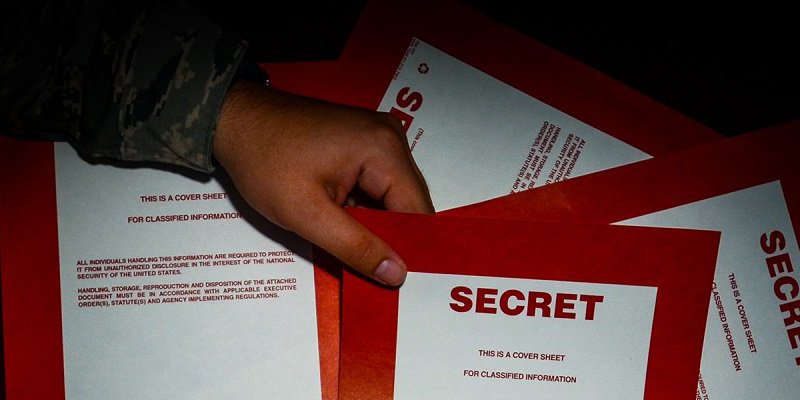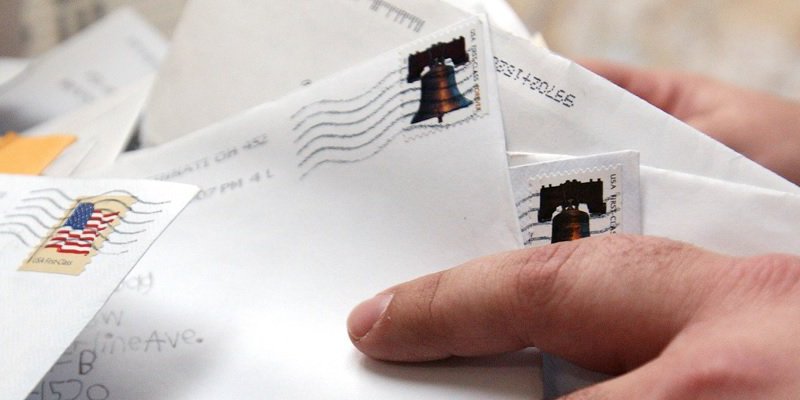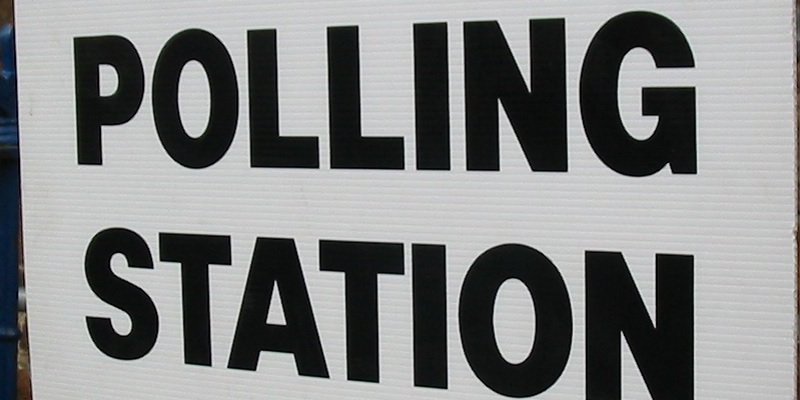-

This week’s FOIA round-up: CIA secrecy around torture suspect’s body, journalists create a police use of force database in New Jersey, and the University of Arizona spends $1.4 million on legal fees
For this week’s FOIA round-up, the Central Intelligence Agency won’t tell the family of a tortured suspect where his body is, journalists file over 500 public records request to track police use of force in New Jersey, and the University of Arizona spends big money on NCAA corruption investigations.
-

Emails reveal inner-workings of Virginia’s failed conversion therapy ban
Documents responsive to a request by Tom Nash shed light on a proposed conversion therapy ban in Virginia that failed last January. The documents include emails between experts and Doctor David Brown, Director of the Virginia Department of Health Professions, regarding a conversion therapy “workgroup” convened by Brown in October 2018, and a pair of bills, SB 245 and HB 363, seeking to ban the practice.
-

UPDATED: Help release the FBI’s massive file on the Church Committee
The Church Committee investigated and exposed some of the largest and most significant scandals in American history, to the point that it was felt that the very existence of the Central Intelligence Agency was threatened. However, a recent FOIA request to the Federal Bureau of Investigation revealed over 18,000 pages that had never been made public - and with your help, we can sue for their release.
-

CIA employees called for “abolishing FOIA” as one of Agency’s goals for 1984
In early 1984, then-Director of the Central Intelligence Agency William Casey kicked off the “Pursuit of Excellence” campaign, which encouraged Agency employees to be the best at what they do. But before they could do that, they first had to figure out what, exactly, the CIA should be doing - prompting a frank discussion about the Agency’s goals and an even franker admission that eliminating FOIA should be on the agenda.
-

Virginia’s rejected historic markers set high bar for Confederates, drones
Driving through Virginia, one might wonder if there was any Civil War trivia not deemed worthy of throwing on a plaque and setting up by a highway. Wonder no more.
-

What ever happened to that State Department FOIA from Hell?
Back in 2016, we wrote about how Shawn Musgrave’s FOIA request to the State Department about how long it takes to process FOIA requests was stuck in the department’s infamous bureaucratic limbo. We are happy to report that earlier this year, over four years later than the original estimated completion date, Musgrave had finally been given the fruit of his labors: Two whole pages, released in full.
-

Fee issues continue to block access to public records in Massachusetts
While the 2016 reforms to Massachusetts Public Records Law brought some key changes, such as a cap on copying fees and agency response times, Bay State requesters can still face hefty financial barriers to getting their records.
-

MuckRock users release over three million pages of government records
Thanks to their clever FOIA requests, generous crowdfunding, and taking part in large-scale projects, MuckRock users have now helped release more than three million pages of previously secret documents. Thank you for helping build this resource that’s freely available to all.
-

Join our free FOIA workshop in Cambridge December 3rd
Next Monday, we’ll be co-hosting a free public records workshop with Emerson College and the Boston Institute for Nonprofit Journalism at the Democracy Center in Cambridge, Massachusetts. Join us for the free event, whether you’re interested in learning government transparency basics or hoping to find new tactics for freeing documents.
-

This Giving Tuesday, support transparency with a gift that goes twice as far
Today is Giving Tuesday, a chance for you to support transparency and accountability that spans all 50 states while helping tens of thousands of requesters. From now until December 31st, NewsMatch will match your new monthly donation 12x, or double your one-time gift.
-

The CIA’s dank Soviet meme stash
For as long as it’s existed, the Central Intelligence Agency has used Open Source Intelligence (OSINT) in its hunt for information that could serve as fuel for its analysis. This often meant simply reading major foreign newspapers, and monitoring for trends. When it came to understanding foreign cultural movements, CIA took it a step further - they studied the political cartoons of foreign countries. Cartoons that were essentially memes.
-

The FBI and the case of Charlie Chaplin’s stolen corpse
In late December 1977, Sir Charles Spencer Chaplin, known to the world as “Charlie,” died in his home in Switzerland. A few months later, his body was stolen from its cemetery plot, kicking off an international corpse hunt that briefly - if dubiously - included the FBI.
-

Release Notes: Getting better at catching portals, autodownloading of Dropbox links
We launched portal integration with MuckRock a while ago, but have noticed that we are still missing a lot of portals in the system. We’ve made it easier for us to catch when an agency starts using a portal, plus a few other tweaks to speed up getting requesters to their files.
-

#RedactedFriday: Save 10% on FOIA-themed gear for the holidays
Looking to take care of your shopping list but want something truly unique for the journalist, spy, or transparency lover in your life? Use the code RedactedFriday to save 10 percent, with all proceeds supporting MuckRock’s mission to build a more informed democracy.
-

‘Tis the season to thank a FOIA officer
With over 55,000 requests filed through our site, MuckRock and its users are thankful for getting the docs and holding government accountable through them.
-

Virginia’s Trump Winery inspections are a $38 empty glass
MuckRock’s resident Virginian spent the cost of decent meal on inspection reports of the Trump Winery in Charlottesville - and got a costly reminder that just because records are hard to get doesn’t necessarily mean they’re worth getting.
-

Kentucky state records requesters should submit requests the old-fashioned way
In today’s digital era, streamlining public records request should be a breeze. Yet, states like Kentucky are still imposing laws that favor requesters who send in their request the old-fashioned way.
-

Move fast and regulate things: Inside cities’ response to the e-scooter invasion
As e-scooter companies chose to ask for forgiveness, not permission while setting up shop across the country, cities worked quickly to pass regulations. MuckRock surveyed the different approaches they took.
-

This week’s FOIA round-up: Florida midterm recounts spark lawsuits, insanity pleas and recidivism in Oregon, and the CIA considered “truth serum” as a substitute for torture
In this week’s FOIA round-up, lawsuits mount across the Sunshine State amid recounts of three statewide races, and records reveal the Central Intelligence Agency considered subbing torture for “truth serum” interrogations after 9/11. What’s more, Oregon’s Psychiatric Security Review Board claims low recidivism among those acquitted of crimes based on insanity claims, despite internal emails about a study that reveals the opposite.
-

Massachusetts groups demands information on Boston Police Department’s “gang” database
Fourteen organizations have joined in on a public records lawsuit calling for the release of the Boston Police Department’s “gang” database, which the group claims labels, tracks, and shares information about young people it alleges to be involved in gangs.
-

Data Driven: Explore how cops are collecting and sharing our travel patterns using automated license plate readers
The Electronic Frontier Foundation and MuckRock have filed hundreds of public records requests with law enforcement agencies around the country to reveal how data collected from automated license plate readers is used to track the travel patterns of drivers. Today we are releasing records obtained from 200 agencies, accounting for more than 2.5 -billion license plate scans in 2016 and 2017.
-

A Caveat on the Data
Analyzing ALPR data is an imperfect science, and we intend to update this dataset as inconsistencies are identified. If you encounter an issue, please email Dave Maass at dm@eff.org
-

Understanding the Source Documents
Part of our strategy with this public records campaign was to seek two separate, uniform classes of documents easily exportable through Vigilant Solutions’ LEARN system. We provided each agency with a guide to producing these records straight from the user manual, which had been obtained through open records law by Mike Katz-Lacabe of the Center for Human Rights and Privacy. Most agencies were able to follow these instructions and provide the standardized records. Some did not and require a little work to decipher.
-

What We Learned
Our research shows that 173 agencies from 23 states and the federal government accounted for roughly 2.5 -billion license plate scans in 2016 and 2017. The remaining 27 agencies refused to turn over reports on how much data they collected.
-

Explore the Data
You can sort the ALPR table by any of the main fields. You may also search it using the query box at the upper left of the table.